The MU Libraries have reduced hours during Spring Break. Find a complete listing at http://library.missouri.edu/hours/.
Spring Break Hours
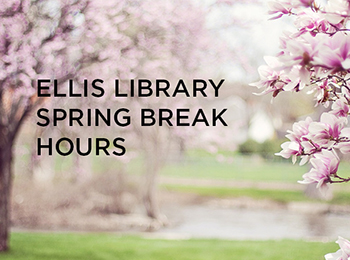
Your source for what's new at Mizzou Libraries

The MU Libraries have reduced hours during Spring Break. Find a complete listing at http://library.missouri.edu/hours/.
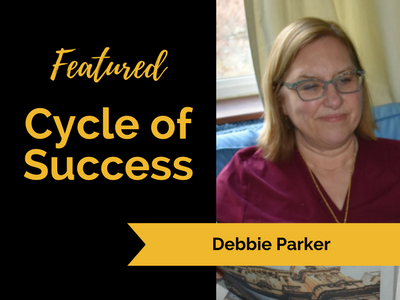
Debbie Parker, instructor at the Center for English Language Learning, pinpoints a key challenge for international students: “Avoiding plagiarism is a daunting task for all students, but it is complicated by the fact that international students have different ideas about what is expected when using support in papers or presentations.”
A major assessment of the Intensive English Program’s students’ mastery of academic English is a formal speech using PowerPoint. This speech must incorporate research and requires students to produce a bibliography. Debbie took her colleague Mary Browning’s advice and contacted Cindy Cotner, the librarian for international students, to set up an instruction session about avoiding plagiarism.
Cindy immediately thought of LibWIS, a series of library workshops for international students. Two of Ellis Library’s Graduate Reference Assistants, Haley Gillilan and Victoria Knight, had recently taught a workshop on just this topic. Planning and teaching workshops is just part of the professional-level training and experience Haley and Victoria receive as GRAs while they complete their degrees in library science. They also provide research assistance in person at the Research Help and Information Desk as well as online through our chat service and assist librarians with other projects.
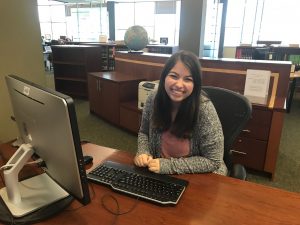
Cindy suggested that Haley and Victoria teach the session since they had already prepared a lesson on plagiarism specifically for international students. She says, “I am grateful that Debbie granted permission for our graduate students to teach in her classroom. Her students were engaged and asked good questions, and I think this activity was a learning experience for all!”
The instruction session went beyond a dry summary of “how to cite sources in academic classes without plagiarizing.” As part of Haley and Victoria’s presentation, they assessed students’ understanding using example citations. Debbie explains, “They asked the students to guess which ones were correct. If it wasn’t acceptable, the students needed to explain what was wrong with it.”
Learning about plagiarism and potential consequences from current students beholden to the same university standards of academic integrity helped reinforce the message in a unique way. Debbie says, “It also made it easier for me to reinforce the importance of citing their sources because I could refer back to the visit and remind them about the presentation that they heard.”
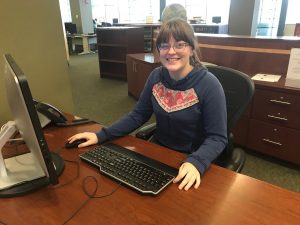
Victoria and Haley benefited from the opportunity to modify a workshop they’d taught before for use in an individual classroom. Victoria says, “Plagiarism is such a big topic and can differ so greatly from country to country. It was an amazing opportunity to get to take one of our library sessions out into the actual classroom. I think it was really beneficial, and it was a fun class to teach.” Haley sums it up well: “I hope that the class helped them with their academic success at Mizzou!”
Debbie wants all students, especially international students, to know that “the library offers so much more than just books.” A former student worker in Ellis Library, she says, “Librarians are an under-tapped resource which can save faculty, staff and students time and energy. The resources and the workshops can make the students’ learning experience much fuller.”
Cycle of Success is the idea that libraries, faculty, and students are linked; for one to truly succeed, we must all succeed. The path to success is formed by the connections between University of Missouri Libraries and faculty members, between faculty members and students, and between students and the libraries that serve them. More than just success, this is also a connection of mutual respect, support, and commitment to forward-thinking research.
If you would like to submit your own success story about how the libraries have helped your research and/or work, please use the Cycle of Success form.
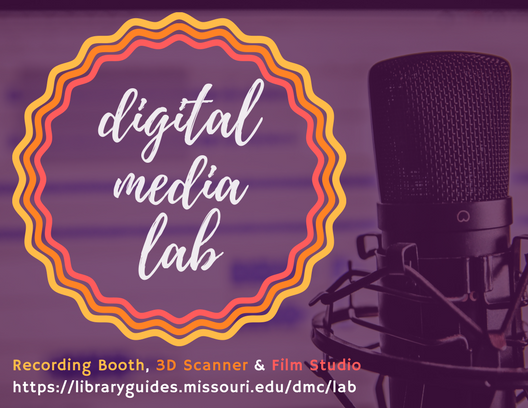
Are you looking for a place to record an audio or video assignment for class? Do you have a project that requires a 3D scanner? If so, check out the Digital Media Lab located in Ellis Library, Room 156. We want to hear from you!
The Digital Media Lab provides a recording booth with various software; a film studio with a camera and green screen; and a 3D scanner. These resources are available to students for use by appointment. Visit https://libraryguides.missouri.edu/dmc/lab to learn more and to schedule your appointment today!
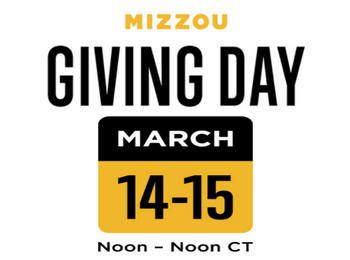
#MizzouGivingDay: Up to the Challenge
Your participation and gifts are part of something big on Mizzou Giving Day. Generous supporters have contributed challenge funds that provide a way for social media users and donors to win money for University Libraries .
Spread the word on Facebook, Twitter, and Instagram by using #MizzouGivingDay. You could win the opportunity to further support the Libraries!
This year’s challenges include:
• Most dollars raised by unit
• Most donations by unit
• A variety of social media challenges
How can you help?
In 2017, the University Libraries achieved impressive results:
What can we achieve this year?
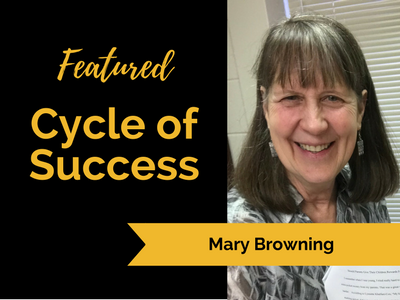
This guest post is written by Mary Browning, Instructor at the Center for English Language Learning.
In the fall of 2017, Cindy Cotner, the liaison between Ellis Library and MU international students, and I collaborated on two workshops designed to teach students in my classes about Zotero, an online tool that helps students research, collect, and cite their sources. As an instructor at the Center for English Language Learning, I am interested in discovering ways to enhance the academic experience of international students for whom English is a non-native language. Last fall, Cindy offered a Zotero workshop for 11 of my advanced students who were studying English full-time at the Intensive English Program and 25 international students who were taking my SSC 1150 College Success Seminar at MU.
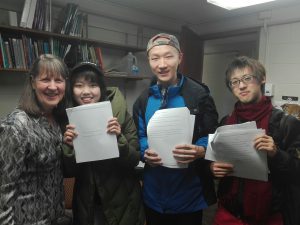
During each workshop, Cindy patiently led the students through a progression of steps that allowed them to achieve sufficient mastery to be able to go back to their classrooms and seamlessly use Zotero in subsequent writing assignments. Because of the challenges that many international students face when studying in a non-native language, workshops offered by Ellis Library can greatly enhance their academic experience while at MU.
The Zotero workshop was a definite success: students in both of my classes were able to immediately apply the knowledge and skills they learned in Cindy’s workshop to their academic classes. They reported using Zotero to develop a personal library of relevant research sources, to access this information in real time by incorporating in-text citations while writing their essay drafts, and to create a reference page for their research essays in several strokes.
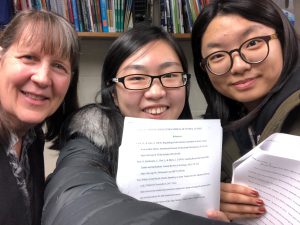
I’d advise any MU student, especially international students, to check out and then attend one or many of the workshops offered by Ellis Library to discover tips and techniques to use while researching and writing essays and completing other assignments. MU faculty who are interested in learning more about ways to collaborate with the library, should contact their subject librarian. Cindy is the contact for support of international students.
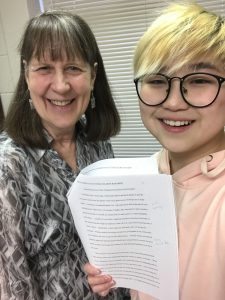
Cycle of Success is the idea that libraries, faculty, and students are linked; for one to truly succeed, we must all succeed. The path to success is formed by the connections between University of Missouri Libraries and faculty members, between faculty members and students, and between students and the libraries that serve them. More than just success, this is also a connection of mutual respect, support, and commitment to forward-thinking research.
If you would like to submit your own success story about how the libraries have helped your research and/or work, please use the Cycle of Success form.
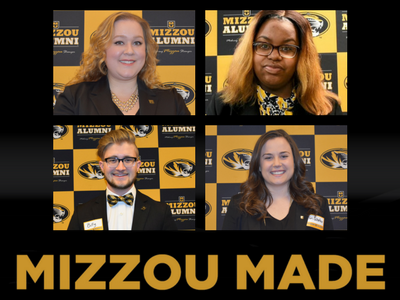
In the spirit of service that was the cornerstone of the 1839 founding of the University of Missouri, the Mizzou Alumni Association Student Board presents the Mizzou ’39 Award to 39 outstanding seniors each year. Chosen for their academic achievement, leadership and service to Mizzou and the community, the honorees represent a variety of majors, activities and organizations from across campus. You can meet the whole class of Mizzou ’39 here.
The Mizzou Alumni Association Student Board also presents the Mizzou 18 Award, which honors 18 University of Missouri graduate and professional students in the last year of their degree eligibility. Chosen for their world-class research, collaboration with faculty and staff, and their demonstrated leadership with undergraduate students, the honorees represent a variety of majors, activities and organizations from across campus. You can meet the whole inaugural class of Mizzou 18 here.
We’d like to recognize four students who have gone above and beyond serving on advisory boards and contributing to improvement efforts for the University of Missouri Libraries during their time at Mizzou. Thank you so much to Rachel Bauer, Alexis Ditaway, Billy Donley, and Tori Schafer for your outstanding library advocacy. We know you’re going to go on to do great things, and we hope you’ll continue to be library users and supporters everywhere you go. MIZ! LIB!
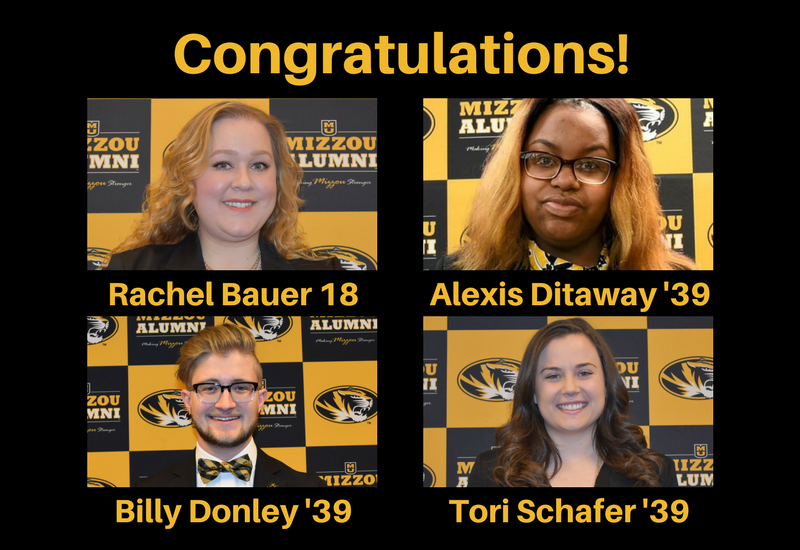
Save
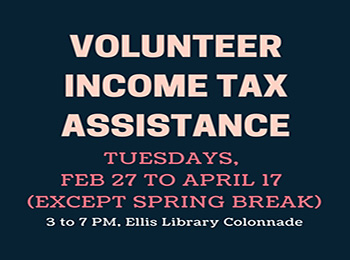
Volunteer Income Tax Assistance (VITA)
Tuesdays February 27 – April 17, 2018 (except March 27)
3:00-7:00 pm
Ellis Library Colonnade
Volunteers will be available to assist with do-it-yourself income tax preparation and e-filing for federal and state income tax returns. This service is available to U.S. citizens and resident aliens without treaty benefits on a first-come, first-served basis until maximum capacity is reached.
You will use software to self-prepare your return. Volunteers will be on hand to answer questions and help with tax or software issues. Volunteers have passed an IRS certification exam covering many aspects of tax law as it relates to tax preparation.
Details on what to bring with you, full-service assistance locations, and additional information can be found on the 2018 VITA flyer.
This program is sponsored by the Personal Financial Planning Department, MU School of Law, and the University of Missouri Extension. Questions? Call (573) 882-2173.
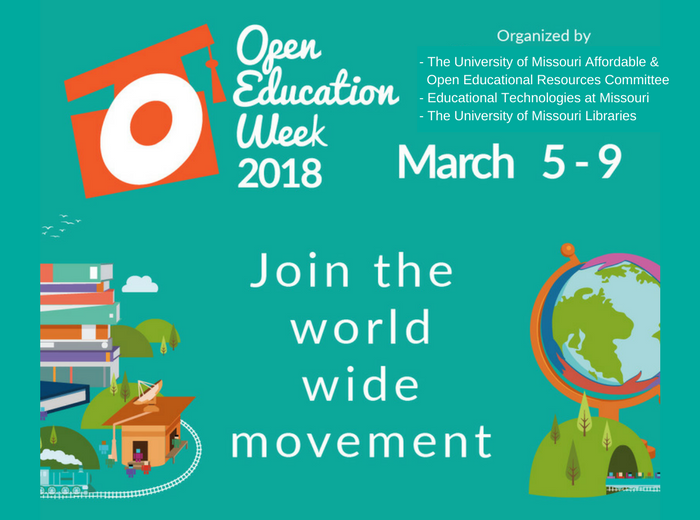
Open Education Week is a celebration of the global Open Education Movement. Its goal is to raise awareness about the movement and its impact on teaching and learning worldwide. Join us!
See the full list here: Open Education Week Events at the University of Missouri
Open education encompasses resources, tools and practices that employ a framework of open sharing to improve educational access and effectiveness worldwide.
Open Education combines the traditions of knowledge sharing and creation with 21st century technology to create a vast pool of openly shared educational resources, while harnessing today’s collaborative spirit to develop educational approaches that are more responsive to learner’s needs.
The idea of free and open sharing in education is not new. In fact, sharing is probably the most basic characteristic of education: education is sharing knowledge, insights and information with others, upon which new knowledge, skills, ideas and understanding can be built.
Open Education seeks to scale up educational opportunities by taking advantage of the power of the internet, allowing rapid and essentially free dissemination, and enabling people around the world to access knowledge, connect and collaborate.
Open is key; open allows not just access, but the freedom to modify and use materials, information and networks so education can be personalized to individual users or woven together in new ways for diverse audiences, large and small.
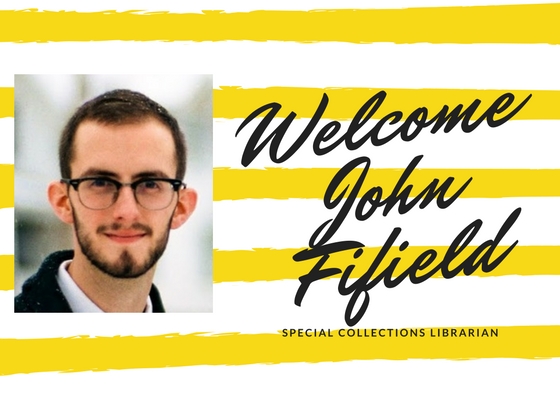
The University Libraries are pleased to announce that John Fifield has been hired as special collections librarian. John has a joint Master of Library and Information Science and Graduate Certificate in Book Arts and Book Studies from the University of Iowa and a Bachelor of Music from Oklahoma State University. He is coming to us from the University of Iowa, where he worked as the Robert A. Olson graduate research assistant in special collections and university archives. During his graduate studies at Iowa, John also worked with the Biblioteca del Convento de la Recoleta in Arequipa, Peru.
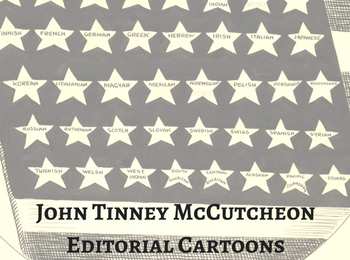
The University of Missouri Digital Library contains a wealth of treasures, all freely available to anyone around the world online. One of the newest treasures is the John Tinney McCutcheon Editorial Cartoons collection.
John Tinney McCutcheon (1870-1949) is known as “the Dean of Cartoonists.” He traveled widely and frequently served as a correspondent during those journeys. For example, during the Spanish-American War, he was embedded with the U.S.S. McCulloch in the Philippines. McCutcheon was awarded a Pulitzer Prize in 1931 for his cartoon “A Wise Economist Asks a Question” and spoke at Journalism Week here at Mizzou in 1939.
Most of the editorial cartoons in this collection are original pen and ink drawings done for the Chicago Tribune between 1903 and 1944. Social issues, economics, politics, the Great Depression, and both World Wars are just a few of the subjects McCutcheon’s cartoons speak to. Click on any of the images below to enter the Digital Library and find out more information about the cartoon.
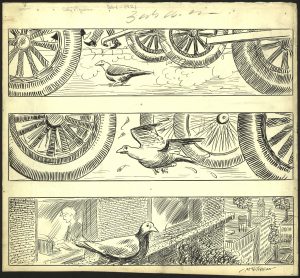
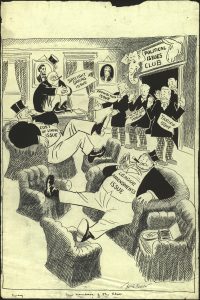
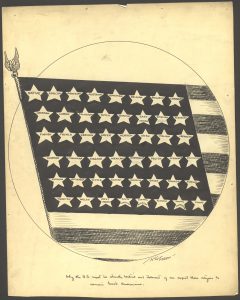
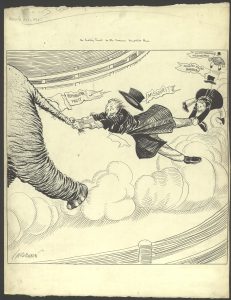
The originals are located in Special Collections in Ellis Library, thanks to a generous donation from McCutcheon’s widow, Evelyn Shaw McCutcheon, in 1955. For those outside of Columbia, though, the Digital Library makes the collection available to anyone with an Internet connection.
Keep your eye on this digital collection. More images will be uploaded and additional information added soon. Additional details and a collection inventory can be found in the online guide on the Special Collections website.
Save